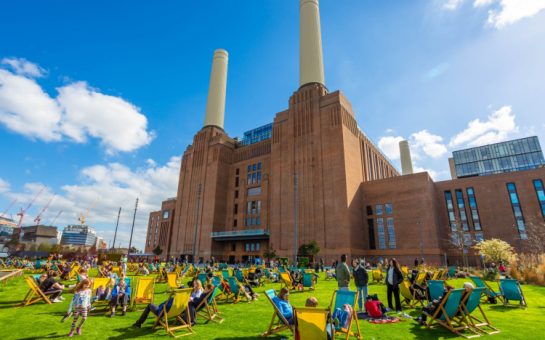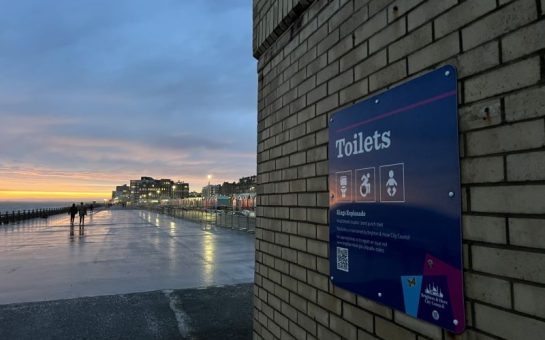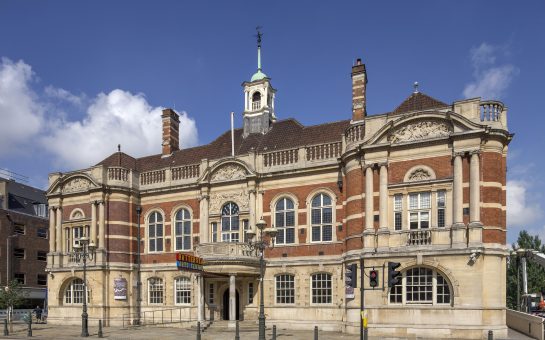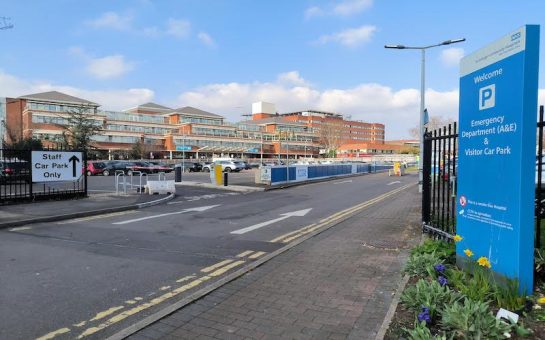Protestors gathered in Battersea last month to demonstrate.

In the wake of Nelson Mandela’s death, the internet is buzzing with his wisdom, posted in tribute to the history he shaped.
For all that Mandela was a great orator, he was also a realist. He knew that the South African apartheid was not isolated in its intensity and injustice, saying once: “After climbing a great hill, one only finds that there are many more hills to climb.”
Guantanamo Bay is one of those hills, a prison camp where torture is common practice; a serious blot on America’s self-proclaimed reputation as the ‘Land of the Free’.
Two weeks ago in Battersea a protest was held to mark the twelve year incarceration of Shaker Aamer, 46, the last Briton held in the U.S detention centre.
Between 50 and 70 people attended the demonstration, a remarkably small number considering the high-profile nature of Guantanamo Bay. President Obama pledged to close it by 2009 as part of his first election bid; four years later, nothing has changed.
Aisha Maniar, an organiser for the London Guantanamo Campaign, says that due to lack of media coverage, the situation in Guantanamo has been misunderstood: “Many people assume Obama closed Guantanamo when he said he would,” she said.
“As for Guantanamo Bay, unfortunately while the situation on the ground has moved on drastically under President Obama, a lot of the media coverage is still focused on the issues the media looked at back in 2005/6 –and a lot of misconceptions exploded since the publication of WikiLeaks’ Guantanamo Files in 2011,” she added.
The WikiLeaks publication, a series of 765 files released so far, provided a greater understanding of the inconsistencies between the claims of the Bush and Obama administrations, and the reality of Guantanamo Bay.
Mr Aamers’ file cites his foreign travel and involvement with NGOs as evidence, along with claims that he was training with Al Qaida at the time of his capture.
Much of the information compiled in the prisoners’ files was provided by other detainees. They are likely to have been unreliable witnesses as both torture and incentives were used to pressure prisoners into giving information, true or not.
Shaker Aamer is kept in Camp 5 Echo, a maximum-security block constructed from steel shipping containers that prevent prisoners from conversing through the walls: a room furnished with just a bed, a squat toilet, and a Koran.
His attorneys have described it as violating the Geneva Convention. Until 2011, its existence was kept a secret: journalists were not shown Guantanamo’s darkest corners, and more information continues to emerge.
Ms Maniar said: “We’ve more recently discovered that there was even a “Penny Lane” detention camp. More and more secrets are coming out as time goes by, and what we know about the facility, methods used there, and prisoners so far is very little. There is still a lot of denial and the US has destroyed a lot of evidence too.”
What would John Lennon, as much a peace activist as a Beatle, have made of prison camps named after his Liverpool haunts, Penny Lane and Strawberry Fields?
In ‘Penny Lane’, double-agents would be rewarded with pornography or cash for informing on other prisoners. ‘Strawberry Fields’ was named for the permanence of its high-security—‘Strawberry Fields Forever.’
Whether in Strawberry Fields, or Camp 5 Echo, Ms Maniar says: “The real issue is indefinite detention without charge or trial of over 160 men for over a decade and how to end that situation.”
Shaker Aamer is not a political prisoner, as Mandela was: no-one knows the reason for his arrest 12 years ago. Aisha Maniar describes his situation as that of a hostage.
Arrested in Kabul in 2001, Shaker had left London, where he worked as a translator for refugees at a legal firm, to volunteer with an Islamic charity. Kidnapped by warlords, he was sold to American forces, where he was tortured, before being taken to Cuba.
A permanent resident of Britain—Shaker’s wife is British—he left Saudi Arabia aged 17, and still holds citizenship there, a key factor in what happens if, or when, his release is secured as he could be extradited there.
On hunger strike since March, with 100 other detainees, Shaker has been force fed through tubes inserted in his nose. His health has deteriorated over the years he has spent in Guantanamo Bay and his contact with the outside world has been severely limited.
Harrowing footage was released on November 16 by the American news channel CBS, where Mr Aamer tells the reporter: “Either you leave us to die in peace – or either tell the world the truth. Open up the place. Let the world come and visit. Let the world hear what’s happening.”
Ms Maniar said: “The British government sought his release with four other men in 2007, the last of whom returned almost 5 years ago, which makes the reasons for Shaker Aamer remaining there all the more suspicious. The British and the Americans are equally guilty and complicit in keeping him there and the on-going abuse of his rights.”
Nelson Mandela is mourned as a hero because of what he suffered, and what he achieved after his release from Robben Island. Studying Afrikaans in jail, he was better able to converse with South Africa’s oppressive leaders. Yet at the time he was called a terrorist. Crucially, he was given the right to a trial.
Shaker Aamer has never been called a terrorist—never have his ‘crimes’ been identified, to enable him to be called one. But the implication is that Guantanamo Bay is where ‘terrorists’ go.
Mystery remains around why, when he has never faced any charges or been associated with any wrong doing, Mr Aamer is still imprisoned despite being cleared. He has filed a defamation case to the Investigatory Powers Tribunal, alleging that British security services told lies about him to American forces at the time of his arrest, and were complicit in the abuse he suffered in Afghanistan.
Kat Craig, legal director or Reprieve, the human rights group representing Mr Aamer said that his detention is a way of protecting further investigation into how this was allowed to continue.
She said: “All the evidence points to briefing against him by the UK intelligence services, who are terrified that his release will allow him to speak freely about the part they played in his torture and rendition. In effect, our spies are undermining the aims of our democratically elected government.”
It is easy to diagnose periods of history as ‘bad’ and to itemise how they became ‘good’, but it is also artificial. Obama, for all his moving reflections on Mandela and his own experience of the anti-apartheid movement, is keeping prisoners without trial, and subsequently without a hope of justice.
In Battersea, Shaker’s family are waiting, just as Mandela’s once did in Soweto.
Whether or not Shaker Aamer is a criminal, he is being treated worse than most criminals could expect to be. In Britain, the limit for detention without charge on suspicion of terrorism is 28 days.
Shakar Aamer is counting 4,380.
Photo courtesy of Shrieking Tree, with thanks.
Follow us @SW_Londoner




